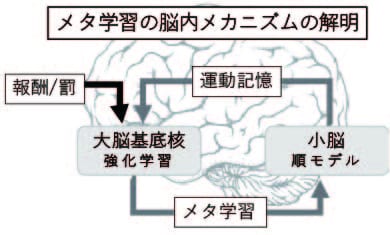A02Meta-learning mechanism based on sensory- and reward- prediction errors: a computational approach to understanding the neural mechanism
We study a neural mechanism of meta-learning where the brain learns to adjust learning parameters optimally for the given task and environment by comparing it with the meta-learning architecture that has been developed in the field of artificial intelligence. To tackle this problem, we adopt an integrated approach by combining computational modeling, behavioral experiment, and brain imaging. When we learn a new motor skill, the speed of learning is accelerated over training sessions. For instance, the learning speed of the second day is typically faster than that of the first day. What is the neural and computational mechanism behind this meta-learning process? Considering the meta-learning architecture of AI, we hypothesized that the brain might be capable of adjusting the learning parameters in order to maximize the expectation of future rewards which is archived by the reinforcement algorithm applied at the meta-level of the motor adaptation. In this project, we develop an experimental paradigm to examine this idea and compare the behavioral/imaging data with the simulation results. We will develop a unified view of motor meta-learning and, based on this understanding; we will discuss how to derive a biologically inspired meta-learning algorithm.






